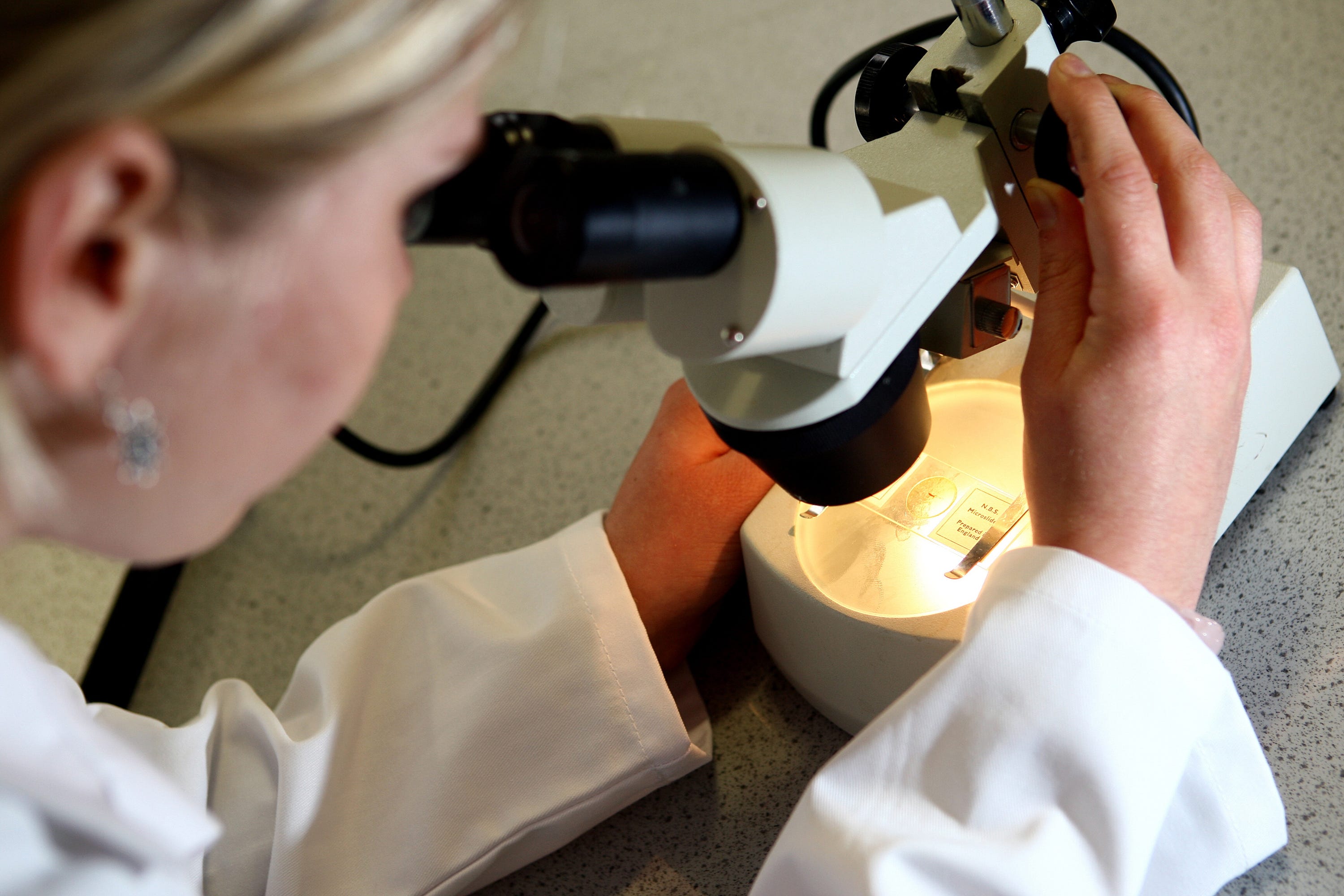New immunotherapy could treat cancer in the bone, study suggests
Developed by UCL researchers, the treatment has shown promising results against a bone cancer called osteosarcoma.

A new type of immunotherapy could help to treat bone cancer, new research suggests.
Developed by UCL researchers, the treatment has shown promising results against a bone cancer called osteosarcoma.
Osteosarcoma is relatively rare, with around 160 new cases each year in the UK, but is the most common bone cancer in teenagers.
More than 150,000 people suffer from cancer that has spread to the bones.
Our hope is that not only will this treatment work for osteosarcoma but also other adult cancers
The study in mice found that using a small subset of immune cells, called gamma-delta T cells, could provide an efficient and cost-effective solution to the cancer – which is often resistant to chemotherapy.
These cells are a less well-known type of immune cell that can be made from healthy donor immune cells.
They can safely be given from one person to another, without the risk of potentially life-threatening graft-versus-host disease.
In order to manufacture the cells, blood is taken from a healthy donor, and the cells are then engineered to release tumour targeting antibodies and immune stimulating chemicals, before being injected into the patient with cancer in the bone.
This new treatment delivery platform is called OPS-gamma-delta T.
Lead author, Dr Jonathan Fisher, UCL Great Ormond Street Institute of Child Health and UCLH, said: “Current immunotherapies such as CAR-T cells (another type of immunotherapy using genetically modified immune cells) use the patient’s own immune cells and engineer them to improve their cancer-killing properties.
“However, this is expensive and takes time, during which a patient’s disease can get worse.
“And, while it is an effective treatment for leukaemia it has been found to be less effective against solid cancers.
“An alternative is to use an ‘off the shelf’ treatment made from healthy donor immune cells, but in order to do this care must be taken to avoid graft-versus-host disease, where the donor immune cells attack the patient’s body.
“The Fisher Lab discovered a way of engineering the previously under-utilised gamma-delta T cells, which have been clinically proven to be safe when made from unrelated donor blood.
“This offers a more cost-effective alternative to current per-patient manufacturing.”
The researchers tested the treatment on mouse models with bone cancer and found that OPS-gamma-delta T cells were better than conventional immunotherapy when controlling osteosarcoma growth.
The OPS-gamma-delta T cells were most effective when partnered with a bone sensitising drug – which has previously been used on its own to strengthen weak bones in patients with cancer.
This treatment prevented the tumours from growing in the mice that received it – leaving them healthy three months later, the study found.
Dr Fisher said: “Thousands upon thousands of people have cancer that spreads to the bones.
“There is currently very little that can be done to cure these patients. However, this is an exciting step forward in finding a potential new treatment.
“Our hope is that not only will this treatment work for osteosarcoma but also other adult cancers.”
Immunotherapy uses the immune system to fight cancer by helping the immune system recognise and attack cancer cells.
Because cancer that starts in or spreads to the bones is so hard to treat, it is a leading cause of cancer-related death.
The findings are published in the Science Translational Medicine journal.
Bookmark popover
Removed from bookmarks